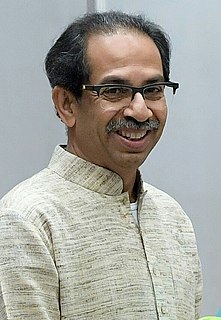A Quote by Vladimir Putin
Prime Minister [Shinz? Abe] and I have spoken a lot, and we said all the right things, in my opinion, about creating an atmosphere of trust and friendship between our nations and peoples.
Related Quotes
As regards humanitarian issues and how to handle them, that was the Prime Minister's [Shinz? Abe] initiative. He brought the matter up at our last meeting in Lima and asked me straightforwardly whether we would agree to let Japanese citizens travel on a visa-free basis, resolve the issue in such a way as to enable them to visit the South Kurils, visit their native areas. I said at once that it was quite possible.
There is progress in the sense that the Prime Minister [Shinz? Abe] has proposed, outlined, as it were, directions for movement toward a peace treaty and the resolution of issues related to territorial problems. Now, what did he propose? He proposed promoting an environment of trust and cooperation. I believe it is even hard to imagine that it can be any different, that we can agree to sign the documents that we are talking about without trusting each other or without cooperation. That is simply impossible even to imagine.
I was a very senior minister in the Howard government and I sat around this particular table [in the prime ministerial office] in many discussions. The difference between being a senior minister and the prime minister is that ultimately the buck does stop with the prime minister and in the end the prime minister has to make those critical judgement calls and that's the big difference.
There are some issues where ministers should come and talk to the prime minister, if the prime minister hasn't already talked to them. Any issue which a minister thinks is going to be profoundly controversial, where we do not have a clear existing position, it is important that there be a conversation between the minister and the prime minister. I think they all understand that and I think it is working very well.
In our party, for the post of the prime minister or chief minister, there is no race, and nor does anyone stake their claim. Who will be the prime minister or chief minister, either our parliamentary board decides on this or the elected MLAs, in the case of chief minister, and MPs, in the case of the prime minister, select their leader.
I'll tell you whose view on [Bashar] Assad is the same as mine. It's Prime Minister [Benjamin] Netanyahu. Prime Minister Netanyahu has said Israel doesn't have a dog in that fight because Assad is a puppet of Iran, a Shia radical Islamic terrorist, but at the same time, Prime Minister Netanyahu doesn't want to see Syria governed by ISIS.
I've spoken several times with Prime Minister Erdogan about relations between Turkey and Israel. I'm pleased that, following President Obama's visit to Israel, talks between Israel and Turkey are again taking place and hope that relations between them will further improve in the interest of both countries.

























